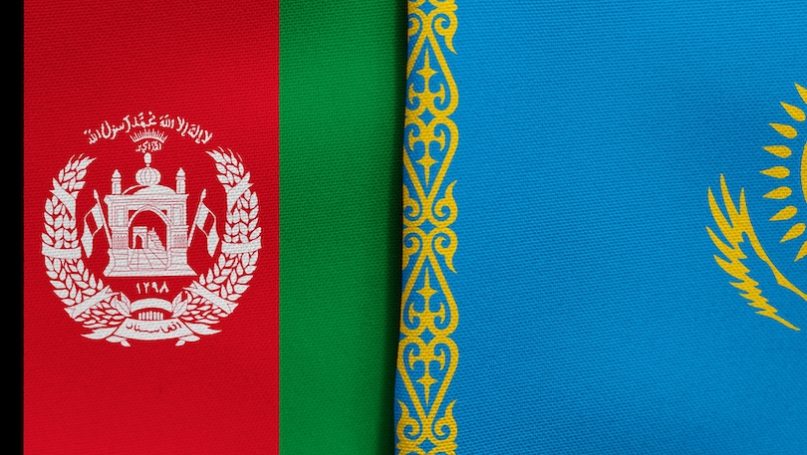
The situation in Afghanistan has not been straightforward since the United States pulled out of the country in 2021. The troubled state continues to face a humanitarian crisis, with almost half of its population – 23 million people – receiving assistance from the World Food Programme last year. According to UNICEF, the number of people in need increased from 28.3 million in January to 29.2 million people in May of this year, mainly due to an increase in the number of people requiring specialized protection services. Worryingly, according to a classified US Pentagon assessment, Afghanistan has become a significant coordination site for Islamic State. There has been a rise in terrorist groups such as Isis-K and al-Qaeda, which threaten stability in the country and cause concern of a spillover of terrorist activity beyond Afghanistan.
Despite these threats and challenges, Afghanistan has been deprioritised by European nations and the United States. The war in Ukraine and relations with China have taken centre stage. As a result, Afghanistan is no longer a key concern for Western countries.
Consequently, countries in the Central Asian region, particularly Kazakhstan and Uzbekistan, have had to fill the gap left by the United States and its allies. Central Asia has always paid attention to the situation in Afghanistan, given its geographical proximity, but it has not previously taken a prominent and active role in regional diplomacy. Now, Central Asian states are at the forefront of supporting Afghanistan’s development and regional integration. Most of the Central Asian countries have pursued a strategy with Afghanistan based on the assumption that cooperation and engagement, particularly economic, will promote stability.
Kazakhstan, the largest of the Central Asian republics, has taken the lead in this endeavour. In 2021, President Kassym-Jomart Tokayev, said Afghanistan should become a stable, sovereign, and united state, living in peace with itself and its neighbours. Kazakhstan has been particularly keen to participate in the development of Afghanistan’s infrastructure, especially in the areas of transport, energy, and agriculture. The ultimate objective is to integrate Afghanistan into the regional economy, then reconnect it fully to global trade.
The government in Astana, the capital of Kazakhstan, is betting that advancing this cross-border transport development will prevent a humanitarian crisis and an economic collapse in Afghanistan. Kazakhstan has been providing humanitarian aid to the Afghan people for many years, even prior to the Taliban takeover, yet this can no longer be considered the only long-term solution.
Instead, Kazakhstan wants to see Afghanistan become a bridge, not a barrier for trade. The Central Asian country has increased its own commerce with Afghanistan. Bilateral trade turnover between the two countries reached almost $1 billion over the past year, which is more than double compared to the previous year. To further enhance trade and economic relations between the countries, Astana hosted the Kazakh-Afghan business forum in August 2023, which included exhibitions of Afghan goods such as agricultural products, carpets and saffron. The aim is to facilitate links between the businesses of the two countries and expand the range of traded goods.
There is a mutual interest for cooperation between Kazakhstan and Afghanistan, as the attained benefits are clear. The Afghan government is hoping for recognition as it has faced international condemnation over alleged restrictions the group has imposed on women’s education, among other infringements on human rights. The Kazakh government has stated that it will only recognise the Taliban government when it is recognised by the United Nations Security Council.
For Kazakhstan, increased trade cooperation with Afghanistan and the latter’s integration into the regional economy is twofold. Firstly, economic gains from expanded trade and investment would help diversify Kazakhstan’s transport corridors, including the Trans-Caspian International Transport Route, which Kazakhstan has been actively promoting. Progress in this field would further solidify Kazakhstan’s role as a key facilitator of trade between Asia and Europe.
Secondly, Kazakhstan is hoping that stability in Afghanistan will prevent the spread of terrorism and extremism. With a low probability of direct attacks on Kazakhstan by ISIS and al-Qaeda, terrorist activity in the region would hurt the overall regional investment climate, which would have negative repercussions for Kazakhstan’s economy, which has already taken a hit due to Western sanctions against Russia, a key trade partner of Kazakhstan.
Ultimately, the spillover effect that could result from an isolated and vulnerable Afghanistan is a serious risk for Kazakhstan. As a result, Astana, together with its Central Asian neighbours, will likely continue to play a key role in efforts to transform Afghanistan into a secure trade artery between Central Asia and South Asia.
Further Reading on E-International Relations
- Opinion – Challenges to Kazakhstan’s Transition to the Green Economy
- Opinion – Kazakhstan’s Dark Heritage
- The Lasting Repercussions of Kazakhstan’s Nuclear Disarmament
- Opinion – The Fate and the Folly of the US Withdrawal from Afghanistan
- Opinion – Coming in from the Soviet Cold: Feminist Politics in Kazakhstan
- LGBTQ Politics in Kazakhstan: A Cross-Cutting Electoral Cleavage?